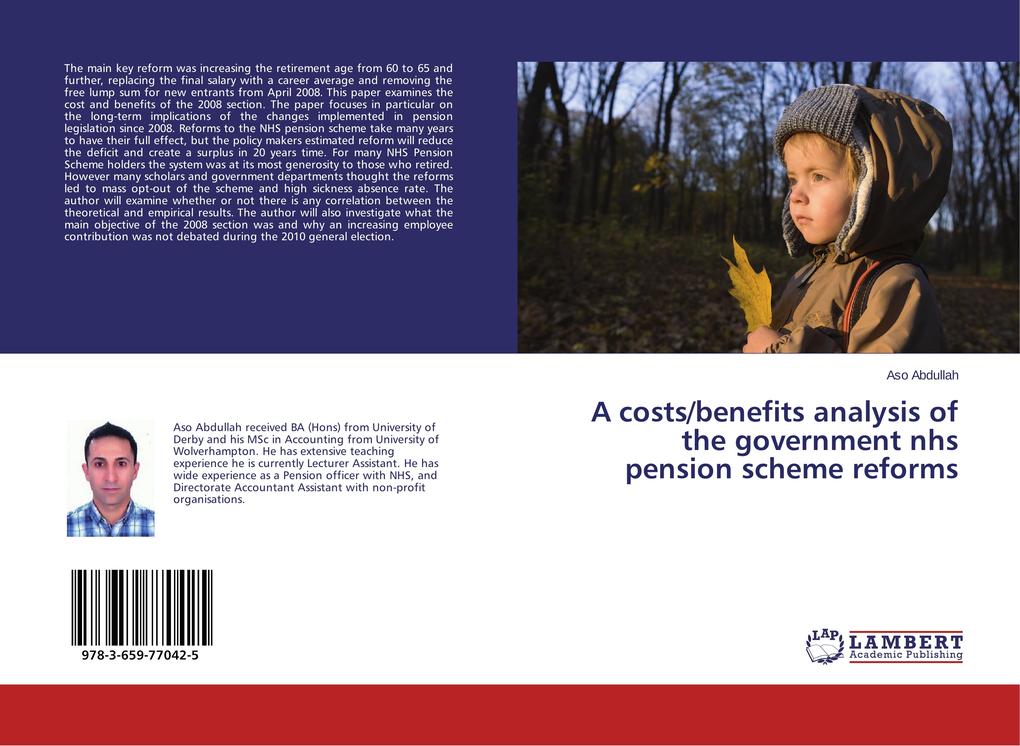
Zustellung: Di, 22.07. - Fr, 25.07.
Versand in 5 Tagen
VersandkostenfreiBestellen & in Filiale abholen:
The main key reform was increasing the retirement age from 60 to 65 and further, replacing the final salary with a career average and removing the free lump sum for new entrants from April 2008. This paper examines the cost and benefits of the 2008 section. The paper focuses in particular on the long-term implications of the changes implemented in pension legislation since 2008. Reforms to the NHS pension scheme take many years to have their full effect, but the policy makers estimated reform will reduce the deficit and create a surplus in 20 years time. For many NHS Pension Scheme holders the system was at its most generosity to those who retired. However many scholars and government departments thought the reforms led to mass opt-out of the scheme and high sickness absence rate. The author will examine whether or not there is any correlation between the theoretical and empirical results. The author will also investigate what the main objective of the 2008 section was and why an increasing employee contribution was not debated during the 2010 general election.
Produktdetails
Erscheinungsdatum
14. August 2015
Sprache
englisch
Seitenanzahl
76
Autor/Autorin
Aso Abdullah
Verlag/Hersteller
Produktart
kartoniert
Gewicht
131 g
Größe (L/B/H)
220/150/5 mm
Sonstiges
Paperback
ISBN
9783659770425
Entdecken Sie mehr
Bewertungen
0 Bewertungen
Es wurden noch keine Bewertungen abgegeben. Schreiben Sie die erste Bewertung zu "A costs/benefits analysis of the government nhs pension scheme reforms" und helfen Sie damit anderen bei der Kaufentscheidung.









